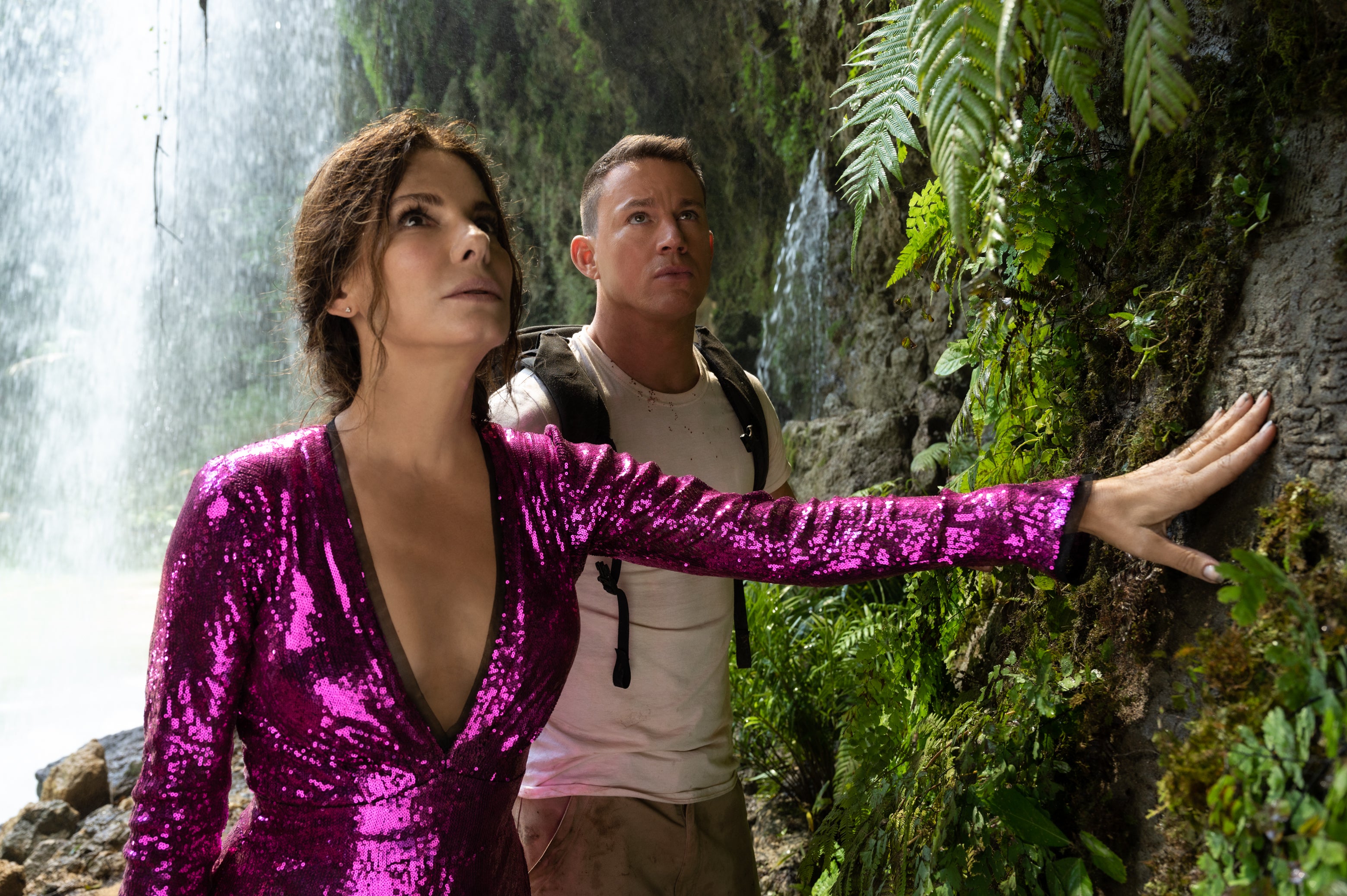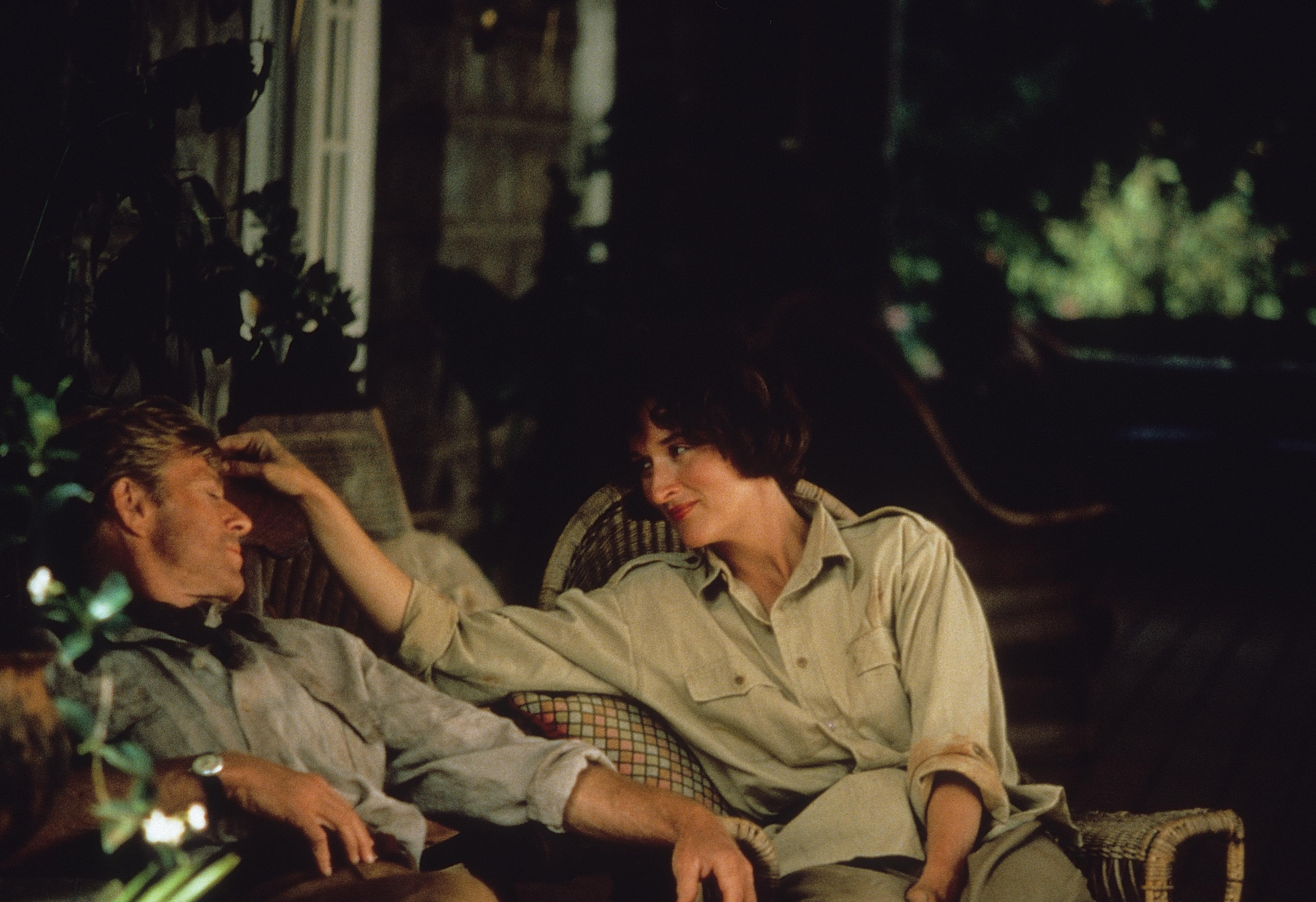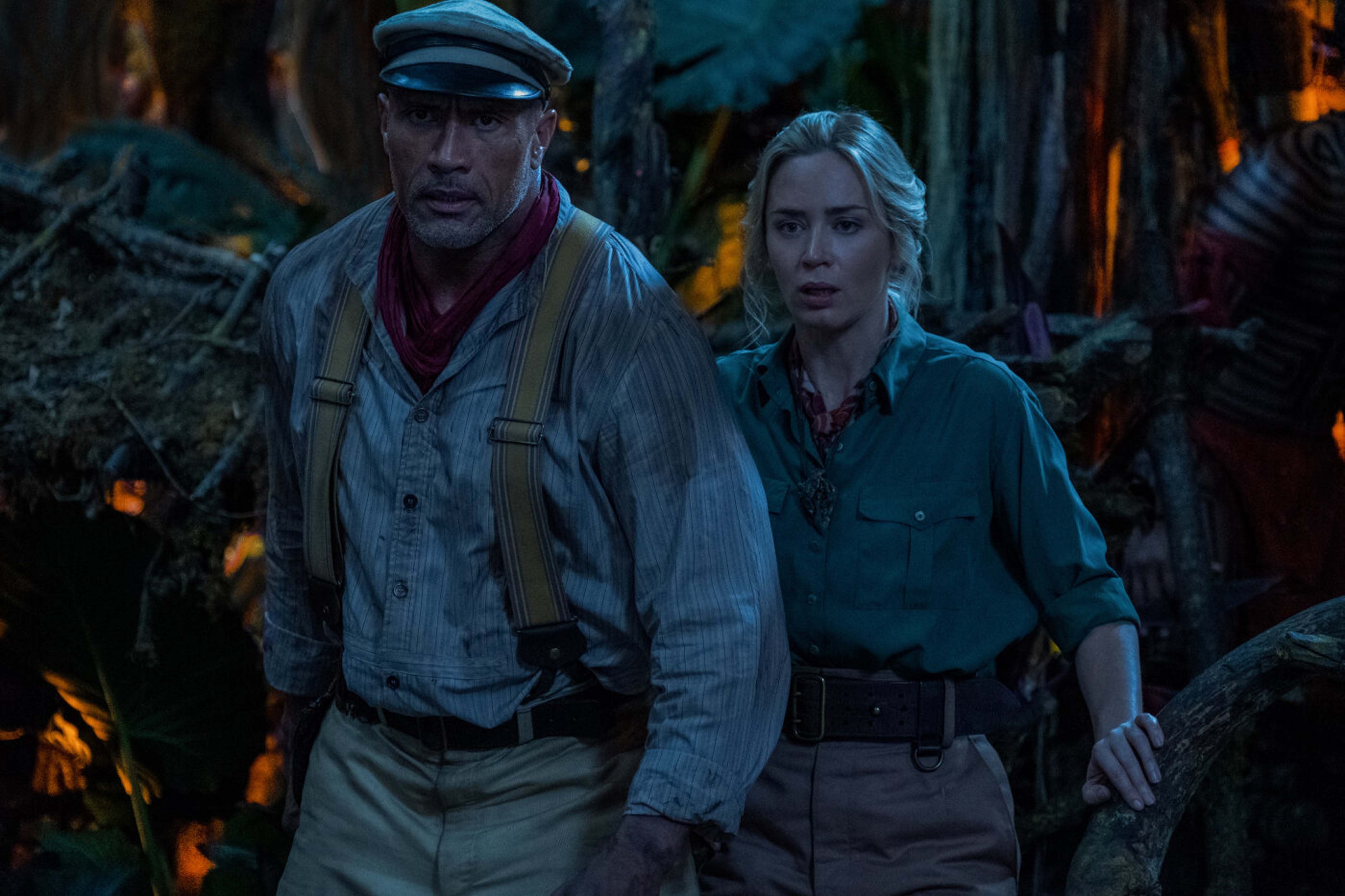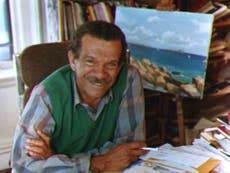Slugs, butts and true love: How The Lost City could revive the screwball action-adventure romantic comedy
Sandra Bullock and Channing Tatum play lovers at the centre of a new adventure that harks back to an old-fashioned kind of movie, writes Geoffrey Macnab

Sandra Bullock in the jungle picking slugs off Channing Tatum’s butt... who said true romance on screen was dead?
The scene in question happens midway through The Lost City. It’s a goofy moment in a goofy film and yet industry analysts are watching the box office performance of Bullock’s latest comic vehicle with intense curiosity. As trade paper Variety recently noted, the film “harkens back to a genre that has mostly fallen out of favour with moviegoers”, namely the star-driven screwball action-adventure romantic comedy. It’s as if Bullock is performing CPR on the genre, trying to get its heart beating again.
Bullock plays novelist Loretta Sage. Early in the film, she is in the bath, drinking chardonnay with ice and dreaming about being somewhere far, far away. She is the author of various bodice-ripping novels, full of sex and adventure, with bits of archaeology thrown in for good measure. But the world of her fiction is very different to Loretta’s mundane existence. The novelist is a widow who despises her readers, hates her life and is contemptuous of the dimwitted male model Alan (Channing Tatum) who wears a blond wig and pretends to be Dash McMahon, the strapping hero of her books. Alan’s party trick at book launches is to rip off his shirt.
The Lost City is arguably the perfect post-pandemic film. It captures the yearning for escape that many people feel after long periods of lockdowns. Not that Loretta has to wait three hours to go through security at an airport or rebook her budget flight because the cabin crew all have Covid. Instead, she is kidnapped by evil billionaire Abigail Fairfax (Daniel Radcliffe) who whisks her off by jet to a volcanic island.
Fairfax plans to use Loretta’s archaeological expertise to track down “the crown of fire”, a priceless historical artefact. Alan turns up to rescue her with an Indiana Jones-like action hero played by Brad Pitt. Soon, she is stranded in the jungle still in the skimpy purple jumpsuit she wore at the book launch, not the ideal outfit for tramping through foliage.
On one level, The Lost City is a blatant rip-off of Romancing the Stone (1984) and Jewel of the Nile (1985), the films in which Kathleen Turner played the romantic novelist who ends up in the wild. On another, it is an exercise in nostalgia for an even older style of filmmaking that has been withering in recent years.
Odd romantic adventures were once a staple of Hollywood filmmaking. From Humphrey Bogart going downriver with Katharine Hepburn in John Huston’s The African Queen (1951) to Ralph Fiennes and Kristin Scott Thomas getting hot under the collar in the desert in The English Patient (1996); from Maureen O’Sullivan and Johnny Weissmuller admiring each other’s loincloths in Tarzan films to Deborah Kerr and Stewart Granger in pith helmets in King Solomon’s Mines (1950) or Meryl Streep and Robert Redford flying past waterfalls in Out of Africa (1985), there was nothing like being stuck in a jungle, up a mountain or somewhere in crocodile-infested waters to spark a love affair.
Such films have fallen badly out of fashion. They’re perceived as treating African and South American landscapes as playgrounds for their western protagonists. They can seem tame and a bit sentimental, too. Nonetheless, studio bosses are clearly hoping that romantic action-adventure films like The Lost City might help lure back older female audiences who’ve conspicuously been staying away from cinemas since Covid struck.

They face stiff competition though. This is still an era of superhero movies and comic book adaptations. The Marvel and DC films aimed at younger male audiences remain utterly dominant at the global box office. These films may deal in passing with relationships but no one is ever going to mistake them for love stories. Their heroes are always far too busy saving the universe or rooting out crime in Gotham City to devote much time to finding the partner of their dreams. Look at the top-grossing films in the US last year and you’ll see only action movies, franchise films and one or two horror pictures. If all the studios are offering is Halloween Kills, Venom and The Fast and The Furious, with a bit of Bond and Spider-Man thrown in for good measure, older female viewers can hardly be blamed for staying at home.
No one, then, is making proper romantic epics anymore. You’ll search in vain in contemporary cinema for moments to match Deborah Kerr and Burt Lancaster embracing on the beach in From Here to Eternity (1953) or the kisses out west between Gregory Peck and Jennifer Jones in Duel in the Sun (1946).
In interviews about The Lost City, Sandra Bullock has noticed this deficit. She has been talking about how “heartbreaking” she finds it that films aimed at women are still so undervalued. Late on in the movie, her character is told off for dismissing her own novels as “schlock”. That, Bullock implies, is how Hollywood has now come to regard screen romances.
In the film, Channing Tatum tells Loretta that, by putting herself down, she is treating her readers with contempt. At this point, the tone suddenly changes. For a moment or two, as the male model and romantic novelist embrace on a Hawaiian beach, the wisecracking stops. She forgets that he is a complete nincompoop and he becomes the dashing hero that she writes about.
The Lost City arrives in the wake of last year’s Jungle Cruise, another romantic adventure story that follows a similar trajectory. Based on a Disney themepark ride, the film had Emily Blunt as the Katharine Hepburn-like heroine reluctantly going downriver on a steamboat skippered by Dwayne Johnson. It too starts in a comic, self-mocking fashion. Inevitably, though, by the final reel, the protagonists get over their bickering and fall in love.

Both films have done well enough at the box office to suggest there may still be wattage in the genre. The next step for the Hollywood studios will be to make a romantic epic that doesn’t hide behind its own jokes. If they’re looking for source material, they could do worse than start with Sara Dosa’s Fire of Love, one of the best-reviewed films at Sundance this year. The documentary tells the extraordinary story of the daredevil French volcanologists, Katia and Maurice Krafft.
When I interviewed her recently, Dosa cited François Truffaut’s French new wave classic Jules et Jim (1962) as one of her inspirations for how she structured her film. Fire of Love is also about a love triangle. Katia and Maurice were obsessed with each other but were equally passionate about volcanoes. They were a chic and glamorous French couple who, like diver Jacques Cousteau, became TV celebrities, using their popularity to raise funds for their expeditions.
The Kraffts were deadly serious about their scientific pursuits. When the lava began to spew, they dressed up in aluminium suits and tried to get as close as they could to the volcanic eruptions.
“Seeing the film as a date movie is very much in line with how we wanted the film to be received… an unexpected date movie that does have an element of science and adventure. For me, I see it first and foremost as a love story,” Dosa told me.
The documentary is notable for its lack of irony. The romance is for real. The tragic coda – the couple were killed while filming an eruption at Mount Unzen in Japan in the early 1990s – only adds to the poignance. Dosa suggested that if Fire of Love was to be dramatised for the big screen, John C Reilly and Tilda Swinton or Gerard Depardieu and Helena Bonham Carter might make effective casting as the Kraffts.
Romantic adventures are then slowly coming back into view. Sandra Bullock and Channing Tatum are more Abbott and Costello than tragic lovers but the heat around their new movie is helping reignite a genre that until recently looked to have been all but extinguished. As Fire of Love and The Lost City show in their different ways, you simply can’t beat the molten appeal of a story featuring a man, a woman and a volcano.
‘The Lost City’ is out now






Join our commenting forum
Join thought-provoking conversations, follow other Independent readers and see their replies
Comments